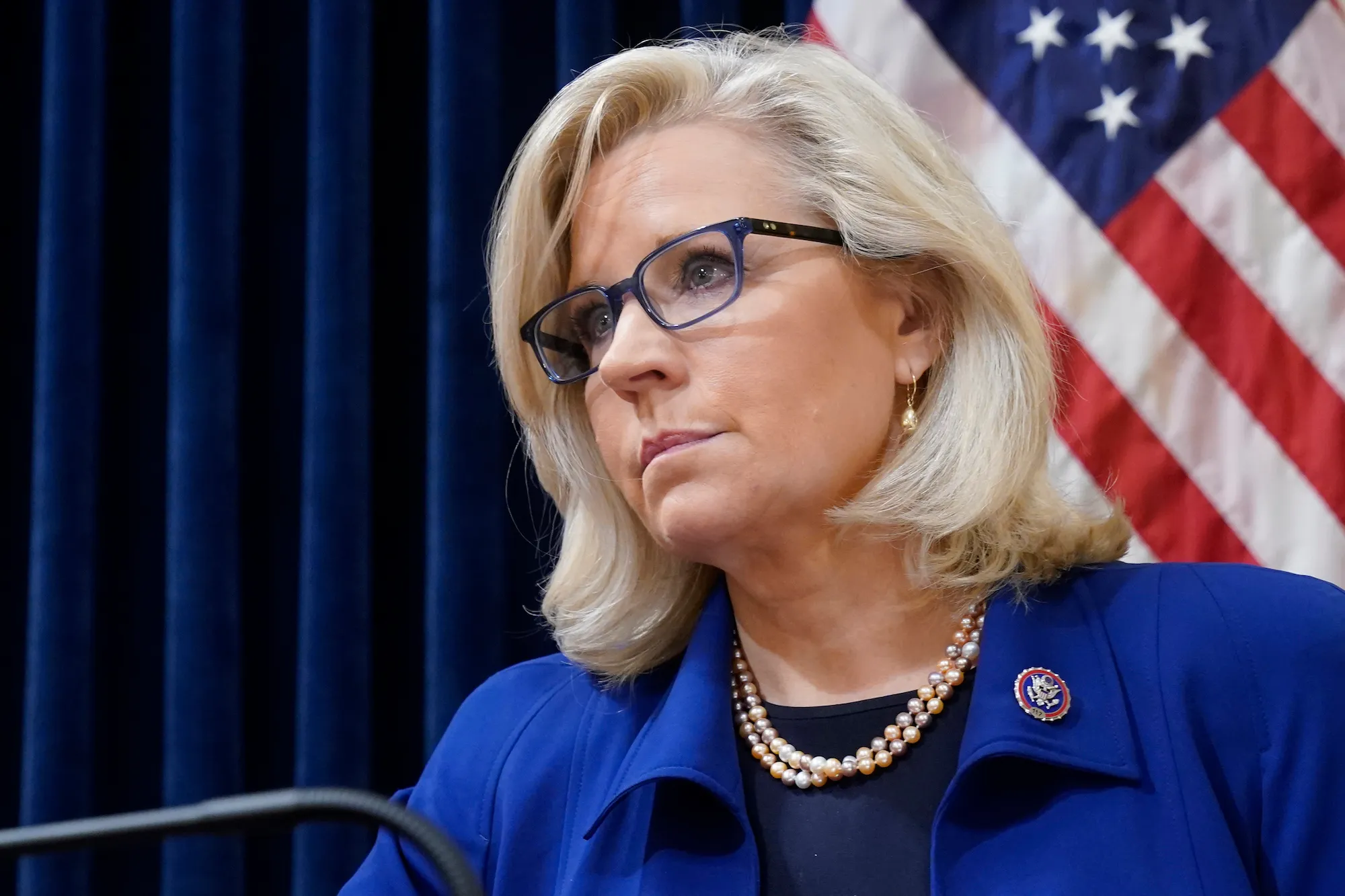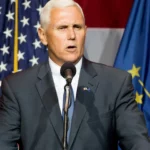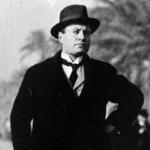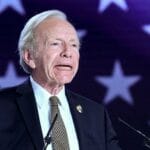Attention politics enthusiasts! Liz Cheney, a name that ignites passionate discussions, has become a captivating force in American politics. Known for her unwavering principles and her direct challenges to former President Donald Trump, Cheney’s journey provides a fascinating glimpse into the complexities of the political sphere. Let’s decode the enigmatic Liz Cheney, exploring her remarkable trajectory, influential votes, and bold statements that continue to shape the future of American politics.
Facts About Liz Cheney
Liz Cheney, a figure who evokes strong reactions, is recognized for her unwavering commitment to her principles, even when they clash with her own party’s stance. Born in 1966, she inherited a powerful political legacy as the daughter of former Vice President Dick Cheney and Lynne Cheney. This upbringing in the heart of politics likely contributed to her strong convictions and her tenacious approach to navigating the political landscape.
Graduating from Colorado College and the University of Chicago Law School, Cheney built a career focused on national security, reflecting her conservative values. From 2017 to 2023, she represented Wyoming’s at-large congressional district in the U.S. House of Representatives. She steadily rose through the ranks, eventually becoming the Chair of the House Republican Conference, a position of significant influence within her party.
However, Cheney’s trajectory took a dramatic turn following the events of January 6th. Her steadfast criticism of former President Donald Trump and her active role as Vice Chair of the House January 6th Committee placed her at odds with many in the Republican Party. This ultimately led to her expulsion from the Wyoming Republican Party in 2021, a clear indication of the deep divisions within the party at that time.
Some experts suggest that Cheney’s actions could have long-term consequences for the Republican Party, potentially even reshaping its future. Others believe her unwavering stance against Trump might resonate with voters who feel disillusioned by the current political climate.
While her future in politics remains uncertain, one thing remains clear: Liz Cheney is a figure who inspires strong reactions, and her actions continue to shape the narrative of American politics. Whether you agree with her views or not, her story offers a compelling example of the complexities and the evolving nature of the political sphere.
Here’s a quick look at some key facts about Liz Cheney:
| Fact | Details |
|---|---|
| Born | 1966 in Madison, Wisconsin |
| Parents | Dick Cheney (father) & Lynne Cheney (mother) |
| Education | Colorado College, University of Chicago Law School |
| Political Party | Republican |
| Notable Positions | U.S. Representative for Wyoming (2017-2023), Chair of the House Republican Conference (2019-2021), Vice Chair of the House January 6th Committee (2021-2023) |
| Key Focus Areas | National security, Conservative values |
This snapshot offers a glimpse into the life and career of Liz Cheney. It’s essential to recognize that ongoing research and analysis continue to provide a more comprehensive understanding of her impact and legacy within American politics.
What is Liz Cheney Known For?
Liz Cheney has become a figure known for her willingness to stand by her convictions, even when they challenge the established norms within her own party. She is particularly recognized for her vocal criticism of former President Donald Trump, becoming a leading voice among the small group of Republicans who have publicly denounced his actions.
This outspokenness has come at a cost, however. Cheney’s stance has resulted in significant consequences within the Republican Party, including her removal from her leadership role in the House and even her expulsion from the Wyoming Republican Party.
Despite these setbacks, Cheney remains a significant figure in national politics. She has leveraged her platform to call for a reevaluation and potential restructuring of the Republican Party, a message that has resonated with some factions within the party and the broader political landscape.
Beyond her stance against Trump, Cheney is also known for her expertise in foreign policy. Her views reflect a strong emphasis on national security, unwavering support for the U.S. military, and a generally hawkish approach to international affairs.
It has been suggested that Cheney’s clash with Trump and the Republican Party could be indicative of a larger shift occurring within the party itself. Some view her as a symbol of hope for Republicans seeking to move beyond the Trump era and redefine the party’s identity. Whether this will come to fruition remains to be seen, and Cheney’s own political future is still uncertain. However, the possibility of her running for president—a prospect that has fueled much speculation—is a testament to her enduring influence.
How Did Liz Cheney Get Elected?
Liz Cheney’s entry into the U.S. House of Representatives began in 2016 when she set her sights on Wyoming’s single House seat. Given Wyoming’s largely conservative political landscape, Cheney, a Republican, was a natural fit. Her campaign platform, which centered around supporting businesses and strengthening national security, resonated with Wyoming voters, ultimately leading to her victory.
Cheney’s stance on national security, in particular, has been a defining aspect of her political identity. Throughout her tenure in the House, she served on the Armed Services Committee. In this capacity, she consistently voted in favor of measures that would bolster the U.S. military, advocating for increased defense spending. She maintained a firm belief in a robust military presence around the world and didn’t shy away from promoting tough strategies against perceived adversaries such as Iran.
Perhaps the most defining aspect of Liz Cheney’s political career has been her very public break from the Republican party line, particularly in her opposition to Donald Trump. Cheney became one of the most outspoken critics of Trump within the GOP, openly condemning his actions and policies. This stance came to a head following the January 6th Capitol riot, which Cheney believed Trump was responsible for inciting. True to her convictions, she voted in favor of his impeachment.
This decision, along with her subsequent role as Vice Chair of the House Select Committee investigating the January 6th attack, put her directly in the line of fire. Many within the Republican Party viewed her actions as a betrayal, ultimately costing her the support she needed to win the 2022 Republican primary.
Despite this significant setback, Cheney continued to be a major player in Republican politics, though her presence remained controversial. She has been clear in her desire to see the party return to what she views as its core values. Moreover, she has not ruled out the possibility of a future presidential bid, leaving a sense of anticipation surrounding her next political move.
Whether one agrees with her political positions or not, Liz Cheney’s journey from a relatively unknown Congresswoman to an outspoken critic of her own party, culminating in her high-profile role in the January 6th investigation, is a compelling narrative that sheds light on the complexities of navigating political convictions in a rapidly shifting political landscape.
What is Liz Cheney’s Religion?
Liz Cheney identifies as a Christian and is affiliated with the United Methodist Church. There are indications that her faith plays a role in shaping her political perspectives. For example, she has voiced her opposition to same-sex marriage, a stance that aligns with more traditional interpretations of her church’s doctrine. This is noteworthy because it suggests a link between her personal beliefs and her political actions. It’s as if her moral compass, potentially informed by her faith, guides her political decisions.
What makes Cheney’s story even more intriguing is her willingness to criticize former President Donald Trump, a stance that distinguishes her from many within the Republican Party. This break from the majority of her party suggests that her faith might be a factor in her willingness to take such a public stand against someone who continues to hold significant sway within the GOP. Some speculate that her strong moral convictions, perhaps rooted in her religious upbringing, have emboldened her to speak out against Trump, even when it has come at a political cost.
Liz Cheney’s journey reflects a complex interplay of faith, politics, and personal conviction. Her commitment to her beliefs, even when they run counter to the prevailing political winds, makes her a singular and influential force within the American political landscape.
What’s Liz Cheney Doing Now?
Since leaving Congress, Liz Cheney hasn’t retreated from the public eye. Instead, she has embraced a new role as an educator and continues to be a vocal presence in the political arena.
Cheney currently holds the position of Professor of Practice at the University of Virginia’s Center for Politics. This role allows her to share her extensive experience in American politics with students, leading courses that delve into topics ranging from the nuances of Washington D.C. politics to the intricacies of the January 6th Capitol riot.
However, Cheney’s move into academia doesn’t signify a departure from the political sphere. She remains a prominent voice, especially in her ongoing critiques of former President Donald Trump. She has been unwavering in her condemnation of his actions and has actively worked to prevent him from regaining political power. Cheney’s commitment to this mission is evident in her establishment of “The Great Task,” a political action committee that supports candidates who align with her vision for the country.
Cheney’s public statements since leaving Congress reflect a consistent set of core themes. She frequently emphasizes the urgency of safeguarding the fundamental principles of American democracy and cautions against the dangers of extremism infiltrating political discourse. Notably, she has voiced concern about the potential implications of a Supreme Court decision regarding Trump’s assertion of presidential immunity, a ruling that could have far-reaching consequences for the balance of power.
Liz Cheney’s decision to enter academia has not dimmed her presence on the national stage. She continues to be a force to be reckoned with in American politics—a testament to her ability to command attention, spark debate, and challenge the status quo.
Was Cheney Ever a Vice President?
Liz Cheney, known for her unwavering stance against Donald Trump and her dedication to uncovering the truth about the January 6th Capitol riot, certainly made waves in Washington D.C. However, Liz Cheney herself has never held the office of vice president.
The association with the vice presidency stems from her father, Dick Cheney, who served as the 46th Vice President of the United States under President George W. Bush from 2001 to 2009. While Liz has carved out her own distinct path in American politics, it was her father who held the position of vice president.
Is Liz Cheney Married to a Lawyer?
Yes, Liz Cheney is married to Philip Perry, a prominent lawyer based in Washington, D.C. The couple has been married since 1993.
Philip Perry is a partner at Latham & Watkins, a prestigious law firm specializing in “white-collar” cases—complex legal matters often involving businesses and high-profile individuals. His work in this area complements Liz Cheney’s high-profile career in politics.
Liz and Philip’s partnership extends beyond their respective professions. They have built a life together, raising a family of five children. Theirs is a story that illustrates how a strong partnership can provide support and grounding, even amidst the turbulence of public life.
Did you know that Ben Shapiro is a political commentator, author, and lawyer? There’s much more than that! Read on to discover more astonishing facts about Ben Shapiro.
Here, let’s take a look at some facts about Webb Pierce that you may not know.
- Unlocking Francis Alexander Shields’ Finance Empire: A Comprehensive Biography - July 12, 2025
- Unveiling Francis Alexander Shields: A Business Legacy - July 12, 2025
- Francis Alexander Shields’ Business Career: A Comprehensive Overview - July 12, 2025















